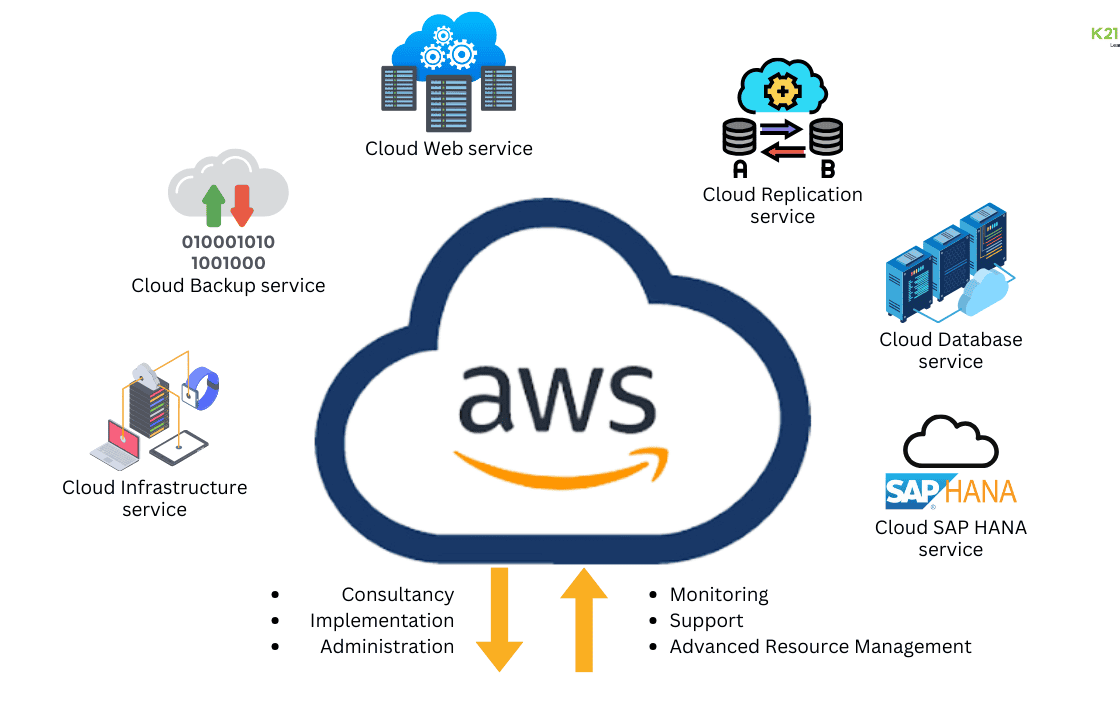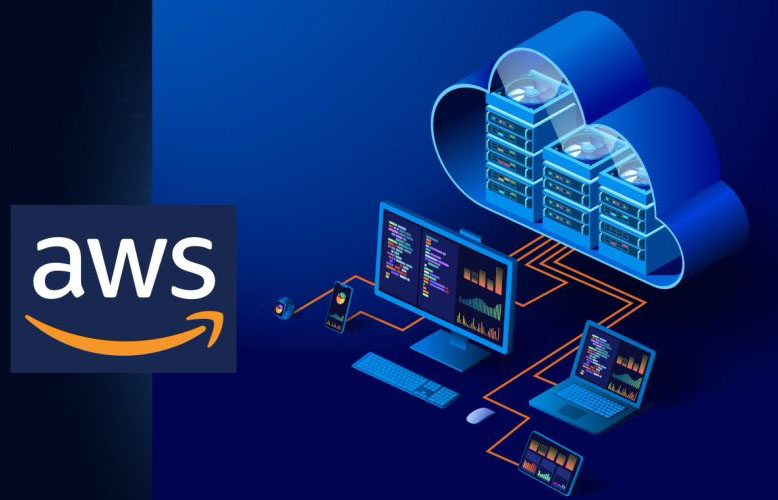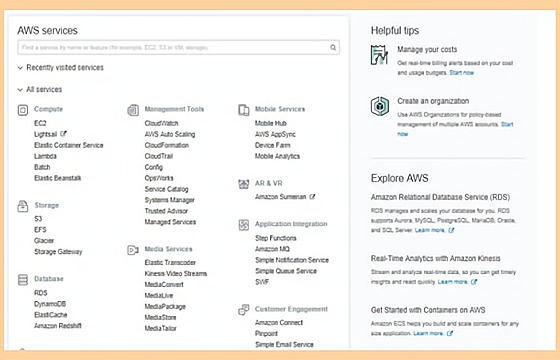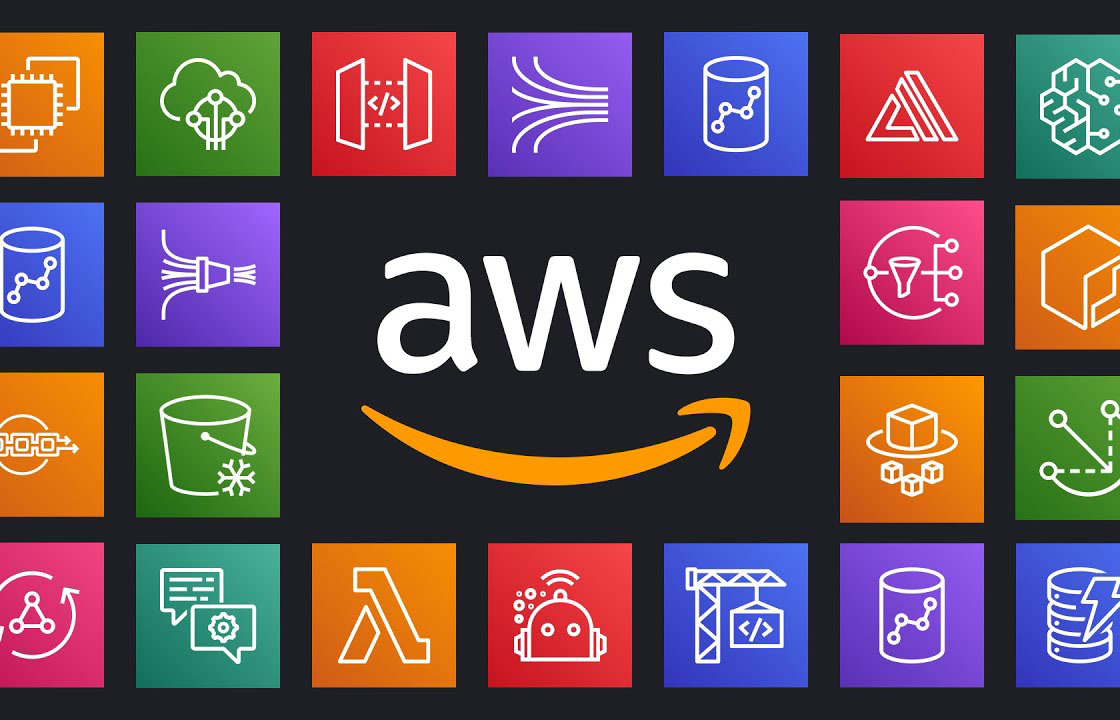Amazon Web Services (AWS): The Smartest Cloud Choice for Real-World Needs

Without going broke, how can you swiftly start a website, app, or online service? When your audience expands overnight, how do you scale? How can you maintain your data ready for the future, dependable, and safe?
For many, the solution is Amazon Web Services (AWS) : the most strong and adaptable cloud storageplatform in the world. You may be aware of online file storage cloud services as Google Drive, iCloud, or Onedrive. Alternatively, cloud-based gaming services such GeForce Now. But AWS offers considerably more; it provides a complete spectrum of services for global infrastructure powering some of the largest companies and fastest expanding startups in the world, storage, artificial intelligence, security, and computing.
This guide will demonstrate how AWS makes it smarter and simpler to construct, scale, and innovate online whether you are a novice, a business owner, or a developer trying to expand.
RELATED:
Top Cloud Storage Options You Can’t Miss in 2025
Top Cloud Storage Devices to Streamline Your Data Needs in 2025

Why AWS Leads the Cloud
Amazon Web Services (AWS) is the world's leading cloud platform and the preferred choice for Infrastructure-as-a-Service (IaaS). Not only is it the biggest supplier; it also provides one of the most comprehensive toolsets and a rapidly expanding third-party service network, which makes it ideal for practically every kind of company or project.
Although rival sites such as Google Cloud and IBM Cloud excel in some respects, AWS still leads with its developed, dependable, and user-friendly offerings. Starting is easy and, even for beginners, controlling your resources seems known. AWS is not remaining still either; it is always getting faster, more flexible, and better in service quality to match the finest in the business. AWS's great variety of services and partners is one of its main advantages. Whether you need a cloud database, an AI-powered application, a video platform, or an online store—all in one locati0n, you can create precisely what you need.
Simply said, AWS is still the intelligent, future-proof option if you want a cloud platform created for the long run.

Core Advantages of AWS
Most cloud platforms offer basic storage and compute, but real-world workloads demand much more. AWS shines by offering the most comprehensive and advanced feature set in the industry, supporting everything from small app development to enterprise-scale data operations.
Yes, AWS includes all the essentials you expect: Compute, Storage & Content Delivery, Databases, and Networking. But that’s just the beginning. In 2016, AWS launched 1,012 new features. In 2017, that number rose to 1,430. This pace of innovation reflects how AWS responds directly to user demands across all sectors.
If you're a developer or system architect, AWS offers:
- Amazon Aurora: A powerful, MySQL- and PostgreSQL-compatible DBMS for high-performance applications.
- Amazon Redshift: A lightning-fast data warehouse that handles terabytes (or petabytes) of analytics data.
- Amazon EMR: A fully managed service for big data processing using Apache Hadoop and Spark.
- AWS Snowball: A secure briefcase-sized appliance for physically migrating terabytes of data to the cloud.
- AWS Snowmobile: Yes, it’s real—an exabyte-scale migration truck for industrial data transfers.
- AI/ML Services: Built-in tools to power forecasting, natural language processing, and more.
- IoT Services: Connect, manage, and secure your devices and data flows in real time.
RELATED:
Microsoft Remote Desktop for Android: A Step-by-Step Setup Guide

For those focused on administration and security, AWS also provides:
- Powerful admin controls via a secure web console
- Identity and access management (IAM)
- Activity auditing, monitoring, and logging
- Encryption key creation, management, and storage
In terms of infrastructure, AWS is built to serve globally:
- 54 Availability Zones across 18 geographic regions, each containing up to six world-class data centers
- Support for Windows Server (2003–2016), multiple Linux distributions, and Docker containers
- Enterprise-grade virtualization powered by the Xen hypervisor
Whether you’re working on IoT microdata or managing an exabyte-scale data migration, AWS doesn’t just support it—it probably pioneered it. And if one day you ever outgrow AWS (unlikely), you’ll be at a scale where building your own private cloud is your next step.

Getting Started on AWS
Getting started with AWS is much smoother than it used to be. While AWS offers a huge number of services and options — which can seem overwhelming at first — the setup process itself is well-designed and surprisingly clear. Setting up a basic cloud environment is straightforward, and the available features are thoughtfully organized.
Although the platform’s complexity creates opportunities for consultants, most users can easily handle simple setups on their own. For example, launching a Windows Server 2016 instance with the necessary apps and security settings was quick and easy. Tasks that were once tricky, like setting up SSH connections or using Windows Remote Desktop, are now mostly automated and hassle-free.
To create a virtual server, you just need to select a few key settings:
- the number of processors
- the amount of memory
- the type and size of storage
- network and security settings
- optional extras like databases
AWS also offers pre-made server images, available through its marketplace — some free, some paid — making it even easier to get started.
After your server is up and running, you can log in using Amazon’s remote desktop tool. It delivers a smooth, full-screen experience that feels just like using a physical machine. Even on a 4K monitor, everything displayed perfectly without awkward window resizing or lag. There was no noticeable latency, and the mouse pointer and server response felt natural — actually better than some local virtual machine setups.
If you're running multiple servers, AWS lets you group them into a Virtual Private Cloud (VPC). It’s not a private cloud in the traditional sense, but it works well for most businesses that don’t deal with highly sensitive or classified data.
AWS has also greatly improved its documentation — but thanks to its clean, user-friendly interface, you may not need it often. Managing a cloud-based Windows Server on AWS feels very similar to running a physical server, with familiar tools like the command line and PowerShell used only when necessary.
RELATD:
Remote Control Your Mac from a Windows PC in Minutes

Cloud performance and security
Downtime is expensive, and weak security is even worse. AWS delivers high-speed performance with consistently top-tier benchmark scores (3021 single-core, 2862 multi-core via Geekbench 4) and ensures data safety through end-to-end encryption, compliance standards (HIPAA, GDPR, etc.), and features like Identity and Access Management (IAM).
Smart Cost Control and Real Flexibility
Cost uncertainty is among the main concerns with cloud adoption. From on-demand pay-as-you-go to spot instances to reserved instances that honor long-term use, AWS addresses this with varying pricing strategies. Tools such as the AWS Pricing Calculator and Cost Explorer help you to predict, track, and maximize your expenditure. Just clear control over every dollar, no unexpected costs.
Recognized by Experts
AWS's quality has not gone ignored. It frequently leads analyst lists and has won honors including PCMag's Editor's Choice. Though rivals like Microsoft Azure and Google Cloud are gaining popularity, AWS keeps ahead because to its extensive ecosystem, strong developer community, and constant innovation. Trusted by Netflix, NASA, Airbnb, and now maybe your next major concept, it is a platform.

If you’re serious about building something that lasts,whether that’s a product, a platform, or a business: AWS is the cloud that grows with you. It’s not just powerful, it’s practical. Not just trusted, but trusted for good reason.
So if you're tired of rigid plans, unpredictable costs, or platforms that don't scale as fast as your ideas, it's time to consider AWS: the smart, secure, scalable solution built for real-world challenges.





